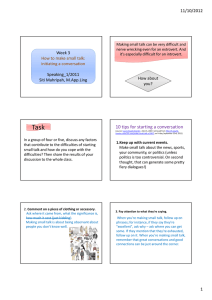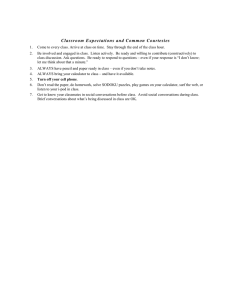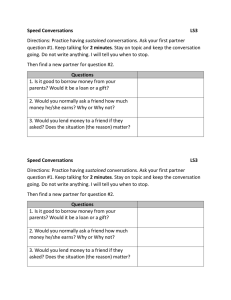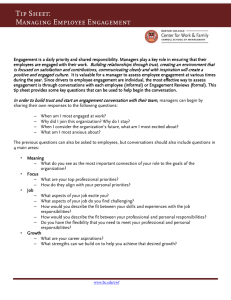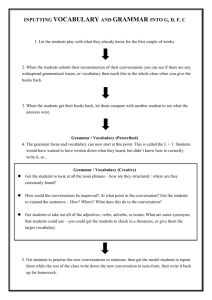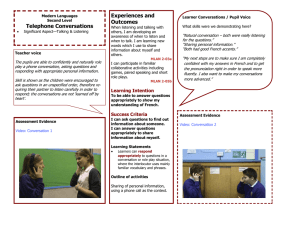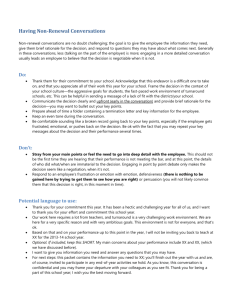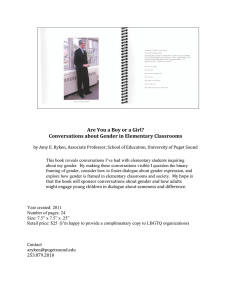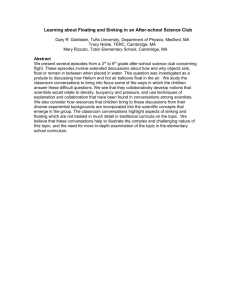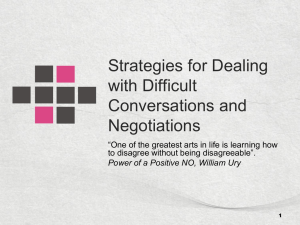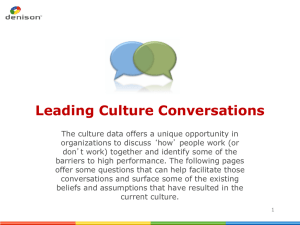Notes for local conversations
advertisement
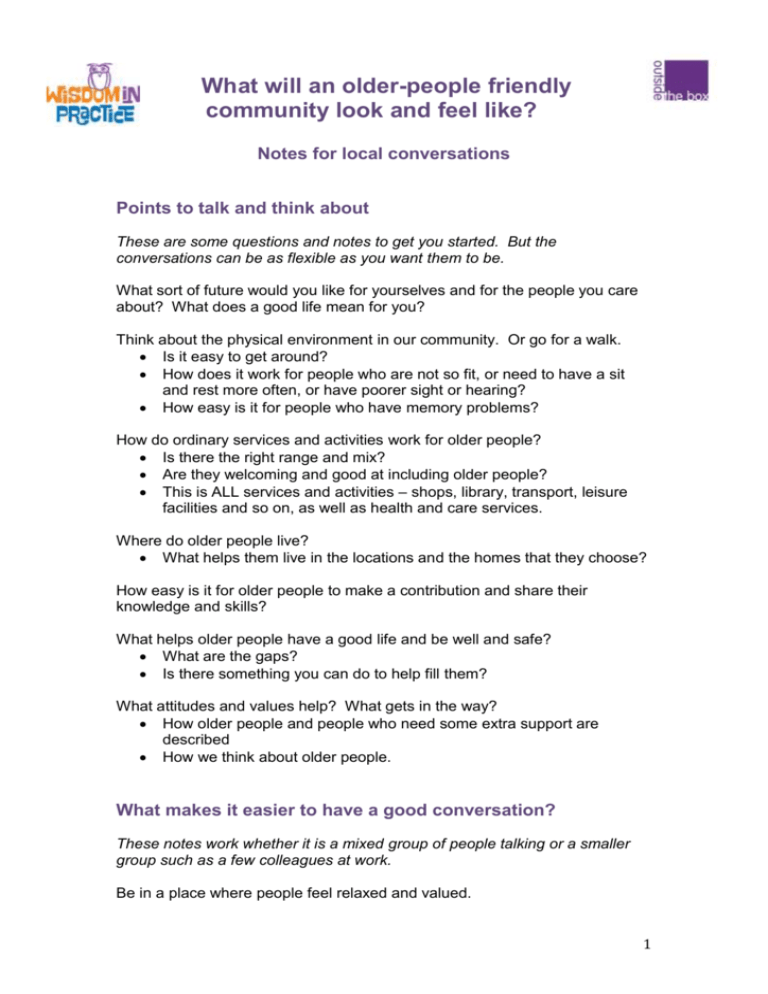
What will an older-people friendly community look and feel like? Notes for local conversations Points to talk and think about These are some questions and notes to get you started. But the conversations can be as flexible as you want them to be. What sort of future would you like for yourselves and for the people you care about? What does a good life mean for you? Think about the physical environment in our community. Or go for a walk. Is it easy to get around? How does it work for people who are not so fit, or need to have a sit and rest more often, or have poorer sight or hearing? How easy is it for people who have memory problems? How do ordinary services and activities work for older people? Is there the right range and mix? Are they welcoming and good at including older people? This is ALL services and activities – shops, library, transport, leisure facilities and so on, as well as health and care services. Where do older people live? What helps them live in the locations and the homes that they choose? How easy is it for older people to make a contribution and share their knowledge and skills? What helps older people have a good life and be well and safe? What are the gaps? Is there something you can do to help fill them? What attitudes and values help? What gets in the way? How older people and people who need some extra support are described How we think about older people. What makes it easier to have a good conversation? These notes work whether it is a mixed group of people talking or a smaller group such as a few colleagues at work. Be in a place where people feel relaxed and valued. 1 Have visual reminders of older people being part of the community – ask people to bring along a photograph of themselves or an older person they know doing something they enjoy. Of your local area – photos, maps Have more than one conversation. Talking about things and then coming back together a week later – or a series of conversations - will help people have deeper and more creative conversations. Have conversations with more people to get different experiences and perspectives. Some people may want to talk about their day, or their week – what was good about it, what was not so good. That then lets them and other people think abut how to build on the good parts and what could change the not-so-good aspects. Don’t rush. Give people time to think and to listen. It’s ok to just have 2 people talking to each other. It doesn’t have to be group discussions. Don’t worry if you don’t write everything down. Having a good conversation is an achievement in itself. (Although we do want to hear about what you discussed, if possible.) What to do with your notes 1: Use your ideas to take forward plans in your local area. 2: Email or post them to Claire McKay at Outside the Box Claire@otbds.org Unit 23, 150 Brand St, Glasgow G51 1DH We are planning to put these on our website. Please say if there is anything you do not want made public. We will pull together the ideas that people have sent us in late 2015. Thanks for your help and enjoy the conversations. 2
